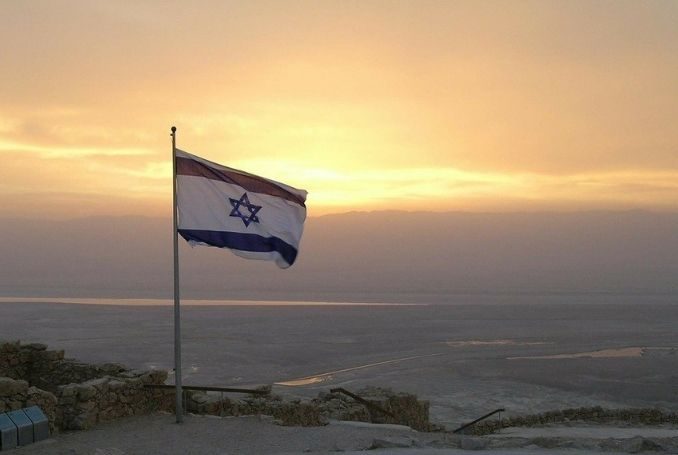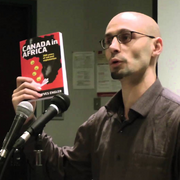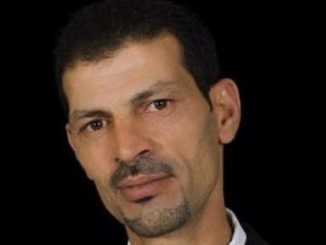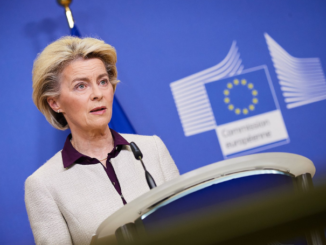
By Yves Engler
The foreign affairs critic of Canada’s social democratic NDP, Heather McPherson, recently published a statement critical of the aggressively racist new Israeli government. It decried “rising anti-Semitism” but ignored Jewish supremacy.
But this is how B’Tselem described Israel in a landmark report two years ago: “A regime of Jewish supremacy between the Jordan River and the Mediterranean Sea: this is apartheid.” Israel’s top human rights group recognizes that dozens of laws discriminate against the indigenous Palestinians and in favour of Jews. “In the entire area between the Mediterranean Sea and the Jordan River, the Israeli regime implements laws, practices and state violence designed to cement the supremacy of one group – Jews – over another – Palestinians”, notes B’Tselem.
“A regime of Jewish supremacy between the Jordan River and the Mediterranean Sea: this is apartheid.”
Recently Prime Minister Benjamin Netanyahu tweeted that Jews have an “exclusive” right to all of Palestine and some of Syria while a Knesset Member of his Likud party declared, “I do not feel any need to justify myself for the fact that I, in the Jewish state, prefer Jews.” The main far-right party in the government is also not coy about its supremacism. Their name is Jewish Power.
Replace the word “Jews” or “Jewish” with “White(s)” in the above statements and most people would understand the racist and supremacist words for what they are.
But the “NDP Statement on extremism within Israel’s new government” didn’t mention either Jewish supremacy or the Jewish Power party name. It did, however, raise the specter of what the apartheid lobby regularly cites to promote Jewish supremacy in Israel. The NDP statement says, “we are witnessing rising antisemitism”, which it links to how “far-right groups are gaining ground around the world.”
Does Jewish Power’s rise have more to do with the far right in North America and Europe or the colonial supremacist logic of Zionism? Is Jewish Power in fact part of the far right?
In “For the Israeli Right, the New Government Represents a Return to Its Fascist Roots” Richard Silverstein traces the hardline supremacists in the new government to pre-state Zionist Revisionism leader Ze’ev Jabotinsky and “the fascist ideology that inspired major sections of the movement during its formative years a century ago.” Jewish Power leader Itamar Ben Gvir is an avowed follower of deceased Brooklyn-born extremist Rabbi Meir Kahane who “was obsessed with Jewish racial purity.”
Canadians trying to understand the rise of supremacist extremists in Israel should recognize Canada’s contribution. Alongside numerous forms of customary diplomatic/economic/security support, the Justin Trudeau government has proffered many types of unconventional backing for Israeli racism, including celebrating Canadians fighting in its military, appointing a “special envoy” to protect Israel from criticism, withdrawing from a major UN conference on racism to placate Israel’s supporters, saying Canada would act as an “asset” for Israel if it gained a UN Security Council seat, spending hundreds of thousands of dollars to stop consumers from knowing where wines are produced to obscure Israeli land theft, etc.
In an unparalleled form of support, registered charities raise over a quarter billion dollars a year for initiatives in a country with a GDP per capita equal to Canada’s. Revenue Canada subsidizes donations to a number of groups set up by or close to ministers in the new extremist government. Gvir’s close political partner Benzie Gopstein leads the racist and homophobic Lehava, which offers Canadian donors tax receipts. So does the Palestinian home demolition NGO Regavim, which was established by new extremist minister Bezalel Smotrich.
Directly and indirectly, Canada has empowered supremacist extremists in Israel. Simply by treating Israel as a run-of-the-mill ally, Ottawa could curtail its expansionism. While technically easy, the political obstacles are multifold. One hurdle is the apartheid lobby’s ability to undercut Palestine solidarity by framing supremacism as defensive. Accurate labeling would undercut their victim framing.
In “Debating the IHRA and Anti-Semitism: Why the CIJA Lost” Independent Jewish Voices member Michelle Weinroth describes how CIJA Vice President Richard Marceau and former Canadian Jewish Congress head Bernie Farber “were left tongue-tied” when a panelist in a 2020 debate described Zionism as Jewish supremacy. Unable to refute the claim, Weinroth suggests “they experienced a certain ‘Zionist’ fragility.”
It’s remarkable how often Israel supporters on social media call Palestine solidarity commentators antisemitic without being labeled Jewish supremacists. Which is generally more apt? And what’s responsible for more injustice today?
While it may be jarring to explicitly counterpose the impacts of antisemitism and Jewish supremacy, the Israel lobby regularly does so, albeit implicitly. For instance, we often hear that it’s antisemitic for Palestine solidarity campaigners to make Jewish Canadians feel uncomfortable about their Zionist (supremacist) views. In other words, we should prioritize the feelings of Canadians promoting a supremacist ideology/state over the Palestinians killed and dispossessed by it.
Irrespective of whether one is comfortable employing the term Jewish supremacy the language status quo is unacceptable. We need to find words appropriate to ending Canada’s promotion of Israeli apartheid.

– Yves Engler is the author of Canada and Israel: Building Apartheid and a number of other books. He contributed this article to The Palestine Chronicle. Visit his website: yvesengler.com.








I support this new government, with its Torah centred administration.